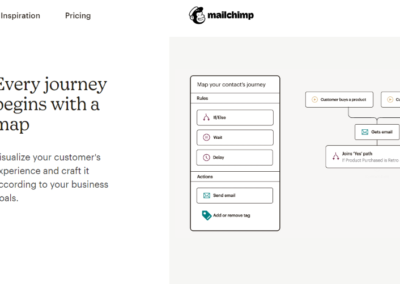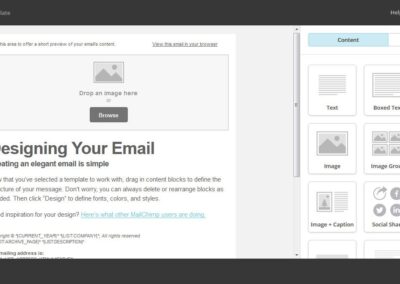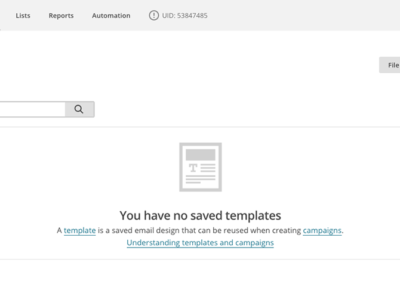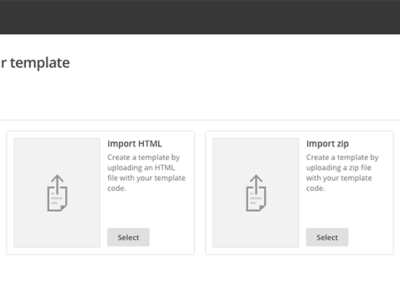This site contains product affiliate links. We may receive a commission if you make a purchase after clicking on one of these links.
Summary
Mailchimp is an okay email marketing tool, with some good features but also some drawbacks.
The free plan is a decent option for personal or small business use, as it includes tools like a survey maker and landing page builder. However, the recent decrease in subscriber and sending allowances may be a deal-breaker for most.
The pay-as-you-go options can be more affordable for low-volume clients and provide automation and integration options, but it may not be the best fit for the majority of businesses. In the end, it is a popular platform but doesn’t really measure up to our top two choices (see our GetResponse and Aweber review)
Overview
Although Mailchimp is a well-known email marketing service, it didn’t make it to the top of our list due to some shortcomings. For example, it doesn’t support affiliate marketing, and some areas, such as automation and segmentation, are lacking in functionality. The CRM features are also quite basic.
Despite these drawbacks, Mailchimp still has its strengths. For instance, it boasts some of the most advanced reporting capabilities available, and offers a wide range of integrations. The user interface is easy to navigate, and there are plenty of visually appealing email templates to choose from. Therefore, while it may not be the best email marketing service out there, we believe it’s still worth a review and comparison with some of the popular alternatives on our top list.
Pricing

When it comes to pricing, Mailchimp offers a variety of options, but the value for the price is somewhat mediocre. The free plan offers some basic features, but the subscriber limit and sending allowance have decreased, making it less appealing for those just starting out. The Essentials plan offers more options, but it can quickly become expensive, especially as your subscriber list grows. The Premium plan provides more advanced features, but again, it can be costly for what it offers. Overall, the pricing options feel a bit lackluster compared to other email marketing services on the market.
Pros and Cons
-
Mailchimp offers visually appealing email templates that cater to a range of email types, including autoresponders, classic newsletters, and transactional emails.
-
Mailchimp’s intuitive interface and drag-and-drop email builder make it an excellent entry-level email marketing platform.
-
Advanced AI capabilities can detect your best-selling products or customer preferences and recommend the best content blocks based on these metrics.
-
Mailchimp’s reporting feature covers all the critical metrics like open rate, bounce rate, click-through rate, and unsubscribe rate in real-time.
-
With its recent acquisitions, Mailchimp now offers digital marketing features such as SMS marketing, multi-channel campaigns, built-in CRM, custom domains and hosting services, and a website builder. However, some of these features are only available with the higher-tier pricing plans.
-
While Mailchimp provides some basic automation features for beginner campaigns, it falls short in terms of more advanced automation capabilities. Compared to other email marketing platforms, Mailchimp’s automation features are limited.
-
Mailchimp’s emphasis on simplicity and ease of use can make managing your mailing list difficult. The platform’s list management is siloed, so you can’t manage your lists across different segments, limiting your targeting capabilities. This can be frustrating for users looking for more advanced list management features.
-
It’s worth noting that Mailchimp prohibits affiliate marketing under its terms of service.





